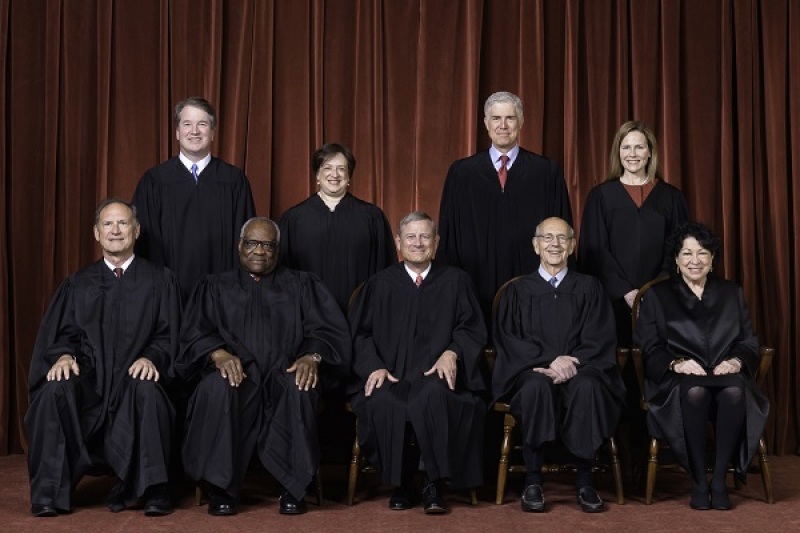
The United States Supreme Court justices are reportedly divided 3-3-3 on major decisions especially on abortion.
CBN News said that although the Supreme Court justices are mostly conservatives, they nonetheless come out divided on major decisions when it comes to cases on abortion, religious liberty, and LGBTQ+.
The United Supreme Court's current members include New York-born Chief Justice John Roberts, Jr. and Associate Justices Sonia Sotomayor and Elena Kagan, Georgia-native Associate Justice Clarence Thomas, California-raised Associate Justice Stephen Breyer, New Jersey's Associate Justice Samuel Alito, Colorado-born Neil Gorsuch, Washington D.C.'s Associate Justice Brett Kavanaugh, and Louisiana's Associate Justice Amy Coney Barrett.
Former President Donald Trump appointed Barrett, Kavanaugh, and Gorsuch. While Former President Brrack Obama appointed Kagan and Sotomayor. Roberts, Alito, and Thomas was nominated by former President Geore Bush. Only Breyer was appointed by former President Bill Clinton.
South Texas College of Law Professor Josh Blackman, in an interview with CBN News, talked about how conservative the justices stand on issues. Blackman identified Thomas, Gorsuch, and Alito as the most conservative while Barrett, Roberts, and Kavanaugh are "in the middle." The rest of the judges are the least conservative.
"I think the most conservative members are Justice Thomas and next Justice Gorsuch, and close by probably Justice Samuel Alito," Blackman said.
CBN News also conducted an interview with The Heritage Foundation legal fellow Sarah Perry who pointed out Barrett actually turned out differently from what the Democrats feared of her as a very conservative judge, having been appointed because of her strong stance against abortion due out of her Catholic belief.
"We learned that Justice Amy Coney Barrett was not the judicial torpedo that a lot of Democrats thought that she was going to be on things like Obamacare," Perry disclosed.
Perry's words mirror the disappointment Trump felt when Barrett and Kavanaugh decided to go with the majority decision in favor of Patient Protection and Affordable Care Act or Obamacare last June. Trump expected the two justices to decide otherwise after having "fought very hard for them." Trump also disclosed there were other rulings they sided with that also disappointed him.
However, during Senate deliberations on Barrett's appointment, California Senator Diane Feinstein already expressed concerns on Barrett might remove the Obamacare as previously reported here.
CBN News said that the justices have been deciding more on "consensus" through the leading of the "more centrist conservatives." Observers noticed the "equilibrium of public opinion" has been driving the court's decision in an effort to avoid "controversial issues." Although some situations that the Supreme Court stood unanimously on the area of religious liberty such as the case of "Sharonell Fulton et. al. v. City of Philadelphia."
In the said case, the court agreed that the state of Philadelphia was indeed discriminating against Catholic Social Services (CSS), a foster care agency of the Catholic church in the state for decades, by refusing to contract with them out of their belief not to place orphans for adoption by same-sex couples.
The Supreme Court, though judging in favor of CSS, failed to "address the larger issue of religious liberty." Alito cited the decision as lacking substance, pointing out that it would been better written on the dissolving paper sold in magic shops." Blackman, on the other hand, retorted that it shows a "flawed understanding of judicial power."
"Their job is to decide whatever case is before them and not create these cockamamie schemes of what may happen in a decade. I think that is a flawed understanding of judicial power," Blackman said.




























